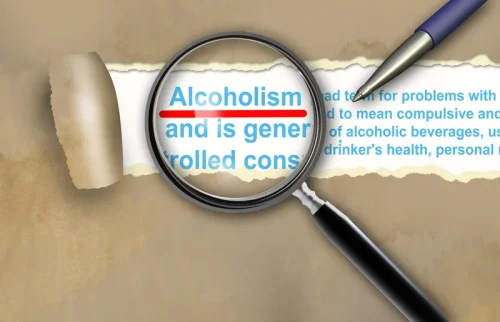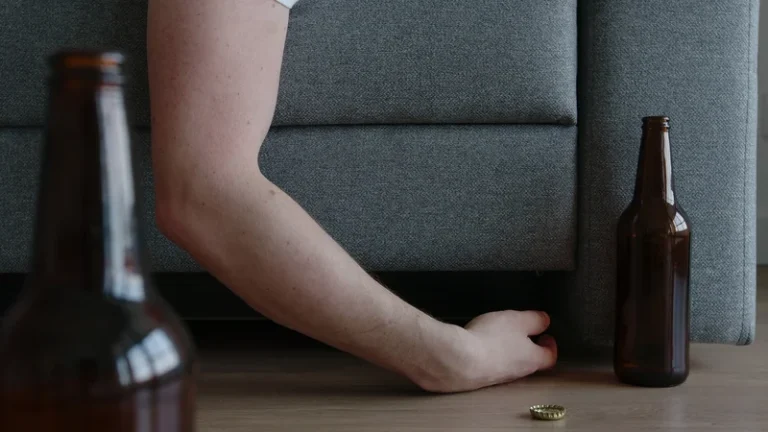
While alcohol addiction can be managed, it often remains a lifelong battle. Relapse is a common part of recovery, with studies showing that about 40-60% of individuals will relapse at some point. This doesn’t mean recovery has failed; it’s simply part of the process for many people. Alcohol addiction is characterized by an inability to control drinking despite the negative impact it has on one’s life. It’s more than just drinking heavily on occasion; it involves a compulsive need to drink and a physical and psychological dependence on alcohol. People suffering from alcohol addiction often find that their relationships, work, and health suffer due to their drinking habits, yet they feel powerless to stop.
- These symptoms can include sleeplessness, anxiety, and muscular spasms.
- A person’s age, genetic predisposition to addiction, health status, and drinking history all have a role to play regarding the severity of the brain damage caused by alcohol.
- Most people know about the damage that the heavy consumption of alcohol causes to their liver.
- It can be hard to identify the lines between casual and occasional drinking and unhealthy alcohol use including alcohol use disorder.
SMART Recovery

When it is finished, it is highly recommended that addicted individuals stay connected to an aftercare program. In general, can alcoholism be cured alcohol consumption is considered too much—or unhealthy—when it causes health or social problems. This broad category of alcohol consumption comprises a continuum of drinking habits including at-risk drinking, binge drinking, and AUD. By classifying alcoholism as a chronic disease, it means that alcoholism is viewed as a progressive, long-lasting illness where there is no cure. No cure, however, does not mean there is no hope for long-term recovery.
Treatment Options
At Recovery Cove, our approach ensures that this process is as safe and comfortable as possible, often incorporating medication to manage withdrawal symptoms effectively. At Recovery Cove, we often field questions about whether alcoholism, or alcohol use disorder, can be cured. Understanding that alcoholism is recognized as a chronic brain disorder highlights the complexity behind this question. The concept of a cure may suggest a permanent end to the disorder, but in the realm of alcoholism, we prefer to focus on effective management and recovery paths that offer hope and transformation. While there may not be a “cure” for alcohol addiction in the traditional sense, there is a clear and well-trodden path to recovery. This path, paved by a combination of medical intervention, therapeutic insights and ongoing support, offers a beacon of hope to both those struggling with alcoholism and their loved ones.

Charitable Care & Financial Assistance
During the detox period is when many alcohol rehab people experience alcohol withdrawal symptoms. Since some alcohol withdrawal symptoms can be life-threatening, it’s important to speak with your healthcare provider before you stop drinking. Long-term, heavy alcohol abusers may do best by detoxing under medical supervision.
Understanding Alcohol Addiction: What It Means to Be Addicted
- These groups offer a sense of camaraderie and understanding that can significantly impact an individual’s ability to maintain long-term sobriety.
- It’s an opportunity to reassess and strengthen one’s relapse prevention plan, understanding that recovery is a marathon, not a sprint.
- At the time when this happens, the person or relatives can expect an easy way out of the problem by providing treatment that makes it right.
- This is because our learning processes are designed to help us learn from our surroundings (don’t go near the lake; little Jimmy fell in the other day and was eaten by a crocodile).
- Read on to learn more about the disease of alcoholism and how it is treated.
When asked how alcohol problems are treated, people commonly think of 12-step programs or 28-day inpatient rehab but may have difficulty naming other options. In fact, there are a variety of treatment methods currently available. These include FDA-approved medications, behavioral therapy, and mutual-support groups. The good news is that no matter how severe the problem may seem, most people with AUD can benefit from some form of treatment. One cannot overstate the importance of a robust support system in the journey towards recovery.

By customizing treatment, including the consideration of co-occurring disorders and individual therapy needs, we aim to offer the most effective support for each person. The first important step for individuals who are suffering from alcoholism is to visit their own doctor. This will result in an assessment =https://ecosoberhouse.com/ that will take in to consideration the individual’s age, as well as the person’s family and medical history. The doctor may also decide to run a variety of blood and neurological tests.

- When suffering from alcoholism, you’re unable to stop despite the social, occupational, and health effects that come with this chronic condition.
- All things being equal, alcohol treatment is aimed at helping people with this condition for the rest of their lives so that they do not relapse into alcoholism.
- But, with engagement in addiction treatment services, a person can successfully manage their AUD and live an otherwise fulfilling life despite their diagnosis.
- Comprehensive treatment gives individuals the needed tools to stay sober for the long-term and enjoy productive lives despite the disorder.
- According to the NIAAA, alcoholism can never be cured, but with the right sort of treatment and follow-up care, it can be effectively managed.
Although your participation in the process can be vitally important, you also need to take care of yourself. Programs such as Al-Anon, which is a support group for friends and family members of alcoholics, may be beneficial as you help support your loved one on the road to recovery. Engaging in therapeutic interventions is a cornerstone of recovery from alcoholism. At Recovery Cove, we leverage therapies like Cognitive Behavioral Therapy (CBT) to help individuals understand the underlying emotional and psychological factors fueling their addiction. Through both individual and group sessions, clients develop coping strategies for managing cravings and triggers, fundamentally changing their relationship with alcohol.

Many rehab centers will set patients up with aftercare as part of discharging them from a program. Treatment professionals help patients navigate aftercare options to find the right fit. At Recovery Cove, we often encounter the question, “Is alcoholism curable?” from many individuals embarking on their journey to sobriety. It’s a question that carries the weight of hope and the desire for a definitive resolution to a struggle that affects not only the individual but also their loved ones.



